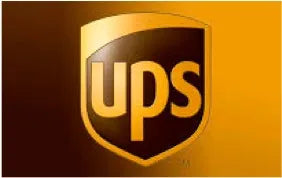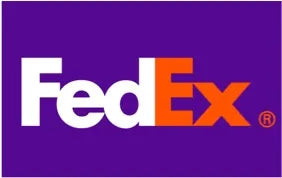In the dynamic world of B2B wholesale, finding suitable suppliers, sourcing quality products, and optimizing your business strategy is essential for success. Whether you're looking for wholesale jewelry, clothing, automotive parts, or home decor, this comprehensive guide will provide valuable insights and strategies to navigate the wholesale landscape. We'll explore key aspects of B2B wholesale and equip you with the knowledge to thrive in this competitive industry.
Table of Contents:
Section 1: Understanding B2B Wholesale
Section 2: Finding Wholesale Suppliers
Section 3: Sourcing Wholesale Products
Section 4: Establishing a Successful Wholesale Business
Section 5: Marketing and Selling Wholesale Products
Section 6: Scaling and Future Opportunities
Section 1: Understanding B2B Wholesale
I、What is B2B Wholesale?
B2B wholesale refers to the business-to-business transaction of goods or services between wholesalers and retailers, distributors, or other businesses. It involves the purchase and sale of products in bulk quantities at a discounted price.
II、Importance of B2B Wholesale for Businesses
B2B wholesale plays a vital role in the supply chain, connecting manufacturers or suppliers with retailers and other businesses. It provides a cost-effective way for businesses to source products, maintain inventory, and meet the demands of their customers. By purchasing goods in bulk, businesses can benefit from lower unit costs, higher profit margins, and increased competitiveness.
III、Key Benefits and Advantages of Wholesale Purchasing
Wholesale purchasing offers several advantages for businesses, including:
Cost savings: Buying in bulk allows businesses to negotiate lower prices per unit, reducing overall procurement costs.
Increased profit margins: By securing products at wholesale prices and selling them at retail prices, businesses can maximize their profit margins.
Product availability: Wholesale suppliers typically have a wide range of products in stock, ensuring a consistent supply for retailers.
Relationship building: Establishing strong relationships with wholesale suppliers can lead to better terms, discounts, and exclusive product offerings.
Market expansion: B2B wholesale enables businesses to reach new markets and customers by accessing a diverse range of products.
IV、Exploring Different Wholesale Markets and Industries
B2B wholesale exists in various industries, such as:
Fashion and Apparel: Wholesale clothing, footwear, accessories, and jewelry.
Beauty and Cosmetics: Wholesale distribution of skincare, makeup, hair care, and beauty products.
Automotive: Wholesale auto parts, car accessories, and automotive supplies.
Home Decor and Furnishings: Wholesale home decor items, furniture, lighting, and textiles.
Electronics and Appliances: Wholesale electronics, appliances, gadgets, and consumer electronics.
Health and Wellness: Wholesale supplements, vitamins, personal care products, and health equipment.
Industrial and Construction: Wholesale industrial supplies, tools, equipment, and building materials.
Food and Beverage: Wholesale food products, beverages, snacks, and ingredients.
Understanding the specific wholesale market and industry dynamics is crucial for businesses to make informed sourcing and purchasing decisions.
Section 2: Finding Wholesale Suppliers
Identifying Reputable Wholesale Suppliers
When searching for wholesale suppliers, businesses should consider factors such as reliability, product quality, pricing, reputation, and customer service. Conducting thorough research, reading reviews, and obtaining references can help identify reputable suppliers.
Online Wholesale Marketplaces and Directories
Online platforms like Alibaba, Thomasnet, Global Sources, Marcothepolo, and Wholesale Central provide comprehensive directories of wholesale suppliers across different industries. These platforms allow businesses to search for suppliers, compare prices, and read customer reviews, simplifying the supplier discovery process.
Local Wholesale Suppliers: "Wholesale Shop Near Me"
For businesses preferring local sourcing, searching for "wholesale shop near me" or attending trade shows and industry events can connect them with local wholesale suppliers. Local suppliers often offer advantages like faster shipping, lower transportation costs, and easier communication.
Evaluating Supplier Reliability and Product Quality
Businesses should assess potential suppliers based on their track record, certifications, product samples, and customer testimonials. Requesting samples, conducting product testing, and visiting supplier facilities (if possible) can help ensure product quality and reliability.
Negotiating Wholesale Pricing and Terms
Effective negotiation is crucial for securing favorable wholesale pricing and terms. By discussing volume discounts, payment terms, shipping arrangements, and exclusivity agreements, businesses can establish mutually beneficial partnerships with their suppliers.
Section 3: Sourcing Wholesale Products
Popular Wholesale Product Categories:
Wholesale Jewelry and Accessories: Offering a wide range of necklaces, earrings, bracelets, rings, and fashion accessories.
Wholesale Clothing and Apparel: Including men's, women's, and children's clothing, as well as activewear, fashion accessories, and footwear.
Bulk Beauty Products and Cosmetics: Encompassing skincare, makeup, hair care, fragrances, personal care items, and beauty tools.
Wholesale Automotive Parts and Accessories: Covering a diverse range of auto parts, car accessories, tools, and maintenance products.
Wholesale Home Decor and Furnishings: Providing a variety of home decor items, furniture, lighting fixtures, rugs, and decorative accessories.
Wholesale Electronics and Appliances: Including consumer electronics, gadgets, smartphones, home appliances, and electronic accessories.
Wholesale Dresses for Boutiques: Offering a selection of fashionable dresses suitable for boutique businesses.
Connecting with Clothing Manufacturers and Apparel Distributors
To source wholesale clothing, businesses can establish relationships with clothing manufacturers, apparel distributors, or wholesale clothing suppliers. Attending industry trade shows and exhibitions, exploring online directories, and networking within the fashion industry can help connect with potential clothing suppliers.
Exploring Jewelry Wholesale Near Me: Finding Reliable Suppliers
For businesses interested in wholesale jewelry, searching for "jewelry wholesale near me" can help identify local suppliers. Visiting jewelry trade shows and networking with industry professionals can also provide opportunities to connect with reputable jewelry wholesalers.
Bulk Buying in the Automotive Industry: Wholesale Auto Parts and Car Accessories
The automotive industry offers a wide range of wholesale opportunities for businesses. By establishing relationships with wholesale auto parts suppliers, car accessories distributors, or partnering with automotive manufacturers, businesses can access a variety of quality products for resale.
Section 4: Establishing a Successful Wholesale Business
Starting a Wholesale Business from Home: Tips and Considerations
Starting a wholesale business from home requires careful planning, organization, and compliance with legal requirements. Consider factors such as product selection, sourcing, storage, inventory management, marketing, and customer acquisition strategies.
Wholesale Trade: Strategies for Effective B2B Commerce
To thrive in wholesale trade, businesses should focus on building strong relationships with suppliers, offering competitive pricing, maintaining high product quality, and providing excellent customer service. Implementing efficient order fulfillment processes and staying updated on industry trends are also essential.
Managing Bulk Orders and Inventory
Efficient inventory management is crucial in wholesale. Implementing inventory tracking systems, forecasting demand, optimizing storage space, and utilizing technology solutions can help businesses effectively manage bulk orders and inventory levels.
Building Strong B2B Relationships: Networking and Collaborations
Networking within the industry, attending trade shows, joining industry associations, and participating in online communities can help businesses build valuable relationships with other B2B professionals. Collaborating with complementary businesses or forming partnerships can create synergistic opportunities and expand market reach.
Expanding Your Wholesale Product Line and Diversifying Offerings
To maximize growth potential, businesses should continuously explore new product opportunities and diversify their wholesale product offerings. Conducting market research, identifying emerging trends, and understanding customer demands can guide businesses in expanding their product line strategically.
Section 5: Marketing and Selling Wholesale Products
Utilizing Online Platforms: Wholesale Websites and Marketplaces
Creating a professional and user-friendly wholesale website, optimizing product descriptions, and showcasing product images are essential for attracting potential customers. Utilizing B2B e-commerce platforms like Shopify Plus, WooCommerce, or Alibaba can also expand a business's online presence and reach a wider customer base.
Wholesale Pricing Strategies: Balancing Profitability and Competitiveness
Determining optimal wholesale pricing requires balancing profitability with market competitiveness. Conducting a thorough pricing analysis, considering production costs, market demand, and competitor pricing can help businesses establish competitive yet profitable pricing strategies.
Trade Shows and Exhibitions: Showcasing Your Wholesale Products
Participating in trade shows, exhibitions, and industry events provides businesses with opportunities to showcase their wholesale products to potential customers, connect with industry professionals, and build brand visibility. Designing an appealing booth, creating engaging product displays, and offering promotional incentives can attract attention and generate leads.
Leveraging Social Media for B2B Promotion and Lead Generation
Creating a strong social media presence on platforms like LinkedIn, Instagram, or Facebook can help businesses connect with potential B2B customers, share product updates, industry news, and engage in meaningful conversations. Running targeted advertising campaigns and leveraging influencer partnerships can also boost lead-generation efforts.
Direct Selling in B2B: Strategies for Success
Direct selling involves personally reaching out to potential B2B customers, showcasing product catalogs, conducting product demonstrations, and building relationships through direct communication. By adopting effective direct selling strategies, such as personalized pitches, follow-ups, and relationship building, businesses can increase their sales and customer retention.
Section 6: Scaling and Future Opportunities
Emerging Trends and Opportunities in B2B Wholesale
The B2B wholesale landscape continues to evolve, with emerging trends such as sustainable sourcing, dropshipping, private label partnerships, and the integration of artificial intelligence (AI) and machine learning. Keeping a pulse on these trends and embracing technological advancements can position businesses for future success.
Exploring E-commerce and Digital Transformation in Wholesale
The shift towards e-commerce and digital transformation is transforming the B2B wholesale industry. Businesses can leverage online platforms, implement seamless order management systems, and embrace automation to streamline operations, enhance customer experience, and expand their online presence.
Wholesale Bulk Buying: The Power of Bulk Orders
Bulk buying offers cost savings and benefits for businesses. By encouraging bulk orders through volume discounts, promotional offers, and incentives, businesses can increase order value, build customer loyalty, and achieve economies of scale.
International Wholesale Trade: Expanding Global Reach
Expanding into international markets can open new opportunities for wholesale businesses. Exploring international trade shows, establishing partnerships with overseas suppliers, understanding local regulations, and adapting marketing strategies to target international customers can facilitate global growth.
B2B Wholesale Automation and Streamlining Operations
Automation plays a vital role in optimizing wholesale operations. Implementing software solutions for inventory management, order processing, invoicing, and analytics can streamline processes, reduce manual errors, and enhance overall efficiency.
Conclusion
B2B wholesale presents tremendous opportunities for businesses to grow, expand their product offerings, and reach new markets. By understanding the intricacies of B2B wholesale, finding reliable suppliers, sourcing quality products, and implementing effective marketing strategies, businesses can position themselves for success in this dynamic and competitive industry. Remember to stay adaptable, embrace emerging trends, and continuously innovate to stay ahead of the curve in the ever-evolving world of B2B wholesale.
You may also like:
Tips for Building a Strong Relationship with Your Wholesale Suppliers
How to Negotiate with Wholesale Suppliers and Get the Best Deals
The Benefits and Challenges of Importing Goods for Wholesale
10 Essential Tips for Successful B2B Wholesale Purchasing












0 comments